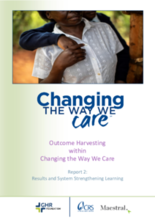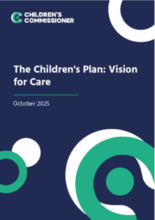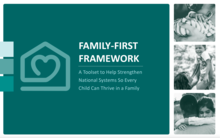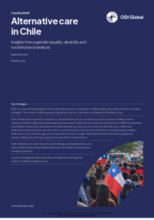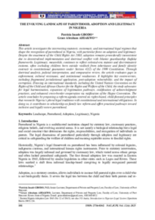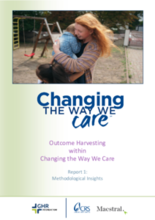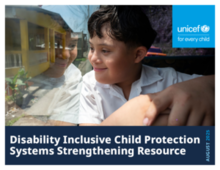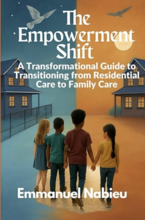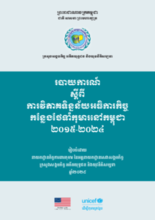Displaying 31 - 40 of 1028
At the close of the Changing the Way We Care (CTWWC) The Changing the Way We Care (CTWWC) initiative launched in 2018 with the aim to reform child care systems by promoting safe, nurturing family-based care over institutional ca
This report assesses Scotland’s efforts to fulfil The Promise—a national commitment made in 2020 to overhaul the country’s care system so children and young people “grow up loved, safe and respected.” It identifies significant persistent challenges in three key areas: governance and accountability, data and measurement, and resources and investment.
This report from the UK Children’s Commissioner, Dame Rachel de Souza, reviews progress and challenges in children’s social care since she began her term in 2021. It highlights persistent failures to uphold children’s rights and presents a vision for transformative reform centered on those rights.
This toolset provides a concise, adaptable framework to help national leaders and stakeholders strengthen child protection systems that prioritize family-based care. It distills key international standards and guidance into accessible materials to support informed, strategic conversations on building “Family-First” systems for all children.
This brief analyses the state of alternative care for children in Chile, highlighting key statistics, sectoral findings and areas for policy improvement. It is part of a broader analysis of gender equality, disability and social inclusion (GEDSI) in Chile. The analysis draws on existing literature, government reports and key informant interviews (KIIs) with stakeholders working in this area.
This article analyzes how Nigeria’s statutory, customary, and international laws intersect to shape adoption and legitimacy, revealing inconsistencies, cultural resistance, and systemic weaknesses that undermine children’s rights. It calls for legal harmonization and reforms grounded in child-centered and rights-based principles to create a more inclusive and secure framework for recognizing parenthood.
At the close of the Changing the Way We Care (CTWWC) The Changing the Way We Care (CTWWC) initiative launched in 2018 with the aim to reform child care systems by promoting safe, nurturing family-based care over institutional ca
The Disability Inclusive Child Protection Systems Strengthening Resource (DI-CPSS) is a practical guide for improving disability inclusion in child protection systems within the framework of the UNICEF child protection systems strengthening (CPSS) approach.
In The Empowerment Shift, Emmanuel "Nabs" Nabieu—who once grew up in an orphanage himself—offers a clear, practical roadmap for transforming how we care for vulnerable children.
This report provides an in-depth analysis of trends and progress in reducing the number of residential care facilities in Cambodia and the children placed in them between 2015–2024.

